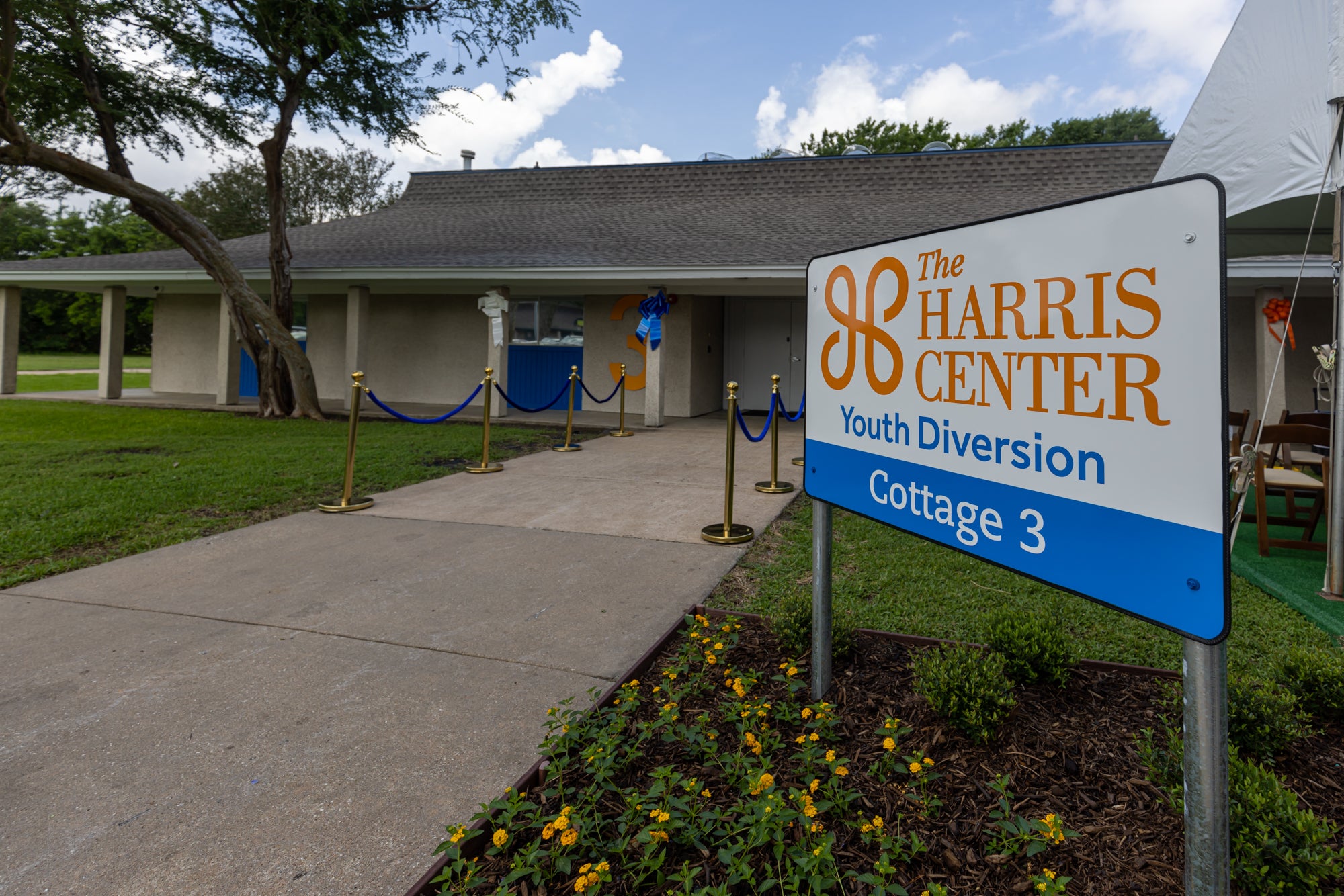Located at 6500 Chimney Rock Road in southwest Houston, it is the first of its kind in Harris County. The Harris Center modeled the Youth Diversion Center after its adult counterpart in southeast Houston, formally known as the Judge Ed Emmett Mental Health Diversion Center, which opened in 2018 and has served as a guide for similar centers throughout Texas — in Corpus Christi, Dallas, Lubbock County and Travis County — and in Atlanta.
“The Adult Diversion Center has diverted a little more than 7,000 people out of the criminal justice system over the last 4 1/2 to 5 years,” said Harris Center CEO Wayne Young. “About a week after the ribbon-cutting, the DA said to me, ‘Wayne, this is exciting. It’s great. What are we going to do about the kids?’ From there the idea began to grow.”
According to the Harris County Juvenile Probation Department, in 2022 the most common juvenile felony offenses were aggravated robbery, unauthorized use of a motor vehicle and evading arrest. The leading cause of juvenile misdemeanors were assault, evading arrest, and detention and assault of a family member.
To determine which youth get diverted takes cooperation between multiple agencies and depends on the severity of the charges.
“The DA can decide if it doesn’t want to charge someone, but they can’t make us deliver services,” Young said. “We can say we want to divert anybody that shows up at our door, but we don’t have the ability to decide who’s going to go to juvenile detention and who isn’t. It takes both the DA and juvenile probation leadership to agree that this person needs to be diverted and doesn’t belong in the criminal justice part of the system, but in another part of the system.”
The Harris Center will operate the Youth Diversion Center in collaboration with the Harris County Juvenile Probation Department and the social services organization Harris County Resources for Children and Adults. The Kinder Institute for Urban Research will also serve as a partner in the evaluation and research of the program. To Young, having this level of collaboration will ultimately yield better results.
“It takes a collective commitment to bring this to fruition and make this happen,” he said. “I’ve learned time and time again, anything we do in partnership is better. It has better outcomes, it has a greater impact and it has more sustainability and support.”
The reasoning for having a client base between ages 13-17 at the Youth Diversion Center is twofold. First, it helps reduce recidivism among participants, and second, from a technical standpoint, those ages are associated with adolescence. However, in Texas a 17-year-old is considered an adult in the criminal justice system, and 18 is the minimum age for entry into the Judge Ed Emmett Mental Health Diversion Center.
“The more interaction you have with the juvenile justice system in your teenage years and in your youth, the more likely you are to encounter the adult criminal justice system,” Young said. “The consequences of that usually means everything begins to spiral downward. It is hard to turn that trajectory once it begins to spiral. Deflecting and diverting early is critical. In our community-based diversion, what we found is that if they were diverted as opposed to going into the criminal justice system, the new charges in the following year were reduced by 50%.”
The initial participants at the Youth Diversion Center were charged with assault of a family member. While Young said he could envision other misdemeanor-level crimes where diversion could be agreed upon rather than detention, domestic disputes involving youth are the most likely to receive mental health services from The Harris Center.
“Our juvenile probation department has done a pretty good job of trying to ensure that people that go into detention are accused of more serious crimes,” Young said. “If a kid gets in a fight with a parent, even if it gets a little bit escalated and even if there is a physical component to it, I don’t think it sits well in our communities to see them in the criminal justice system because of family conflict, particularly when part of that escalation was related to a mental health crisis.”
The center offers wraparound services that are expected to serve about 600 teenagers annually. Clients have access to psychiatry services, physical health services if necessary, therapists and care coordinators. With the Youth Diversion Center serving as a landing spot, Young said its mission is to get youth and families engaged in services and support after they are discharged.
“We want them to be connected,” Young said. “We begin immediately to look and see what programs and services are already available in the community. Our goal is pretty straightforward — it’s to keep kids out of the juvenile justice system. Our subgoals are that we’d like to see kids stay involved in the education system. We’d like to see them stay in stable living situations, meaning at home if that’s possible. We want to see all kinds of improvements that we’ll monitor.”
The Harris Center is the public mental health service for Harris County, and the largest provider of community-based behavioral health and IDD services in Texas. Across its 23 locations, more than 2,600 employees provide comprehensive psychiatric emergency programs, and intellectual disability and mental health services for adults and children.


